Fordham Law School’s Belfast/Dublin Summer Program,
the lessons students are learning about international law, conflict, and what it takes to make peace feel more crucial than ever. Here, a look at the milestones, and at what the future holds.

In group shot: Fordham-Ulster Conflict Resolution Program participants in 1996.
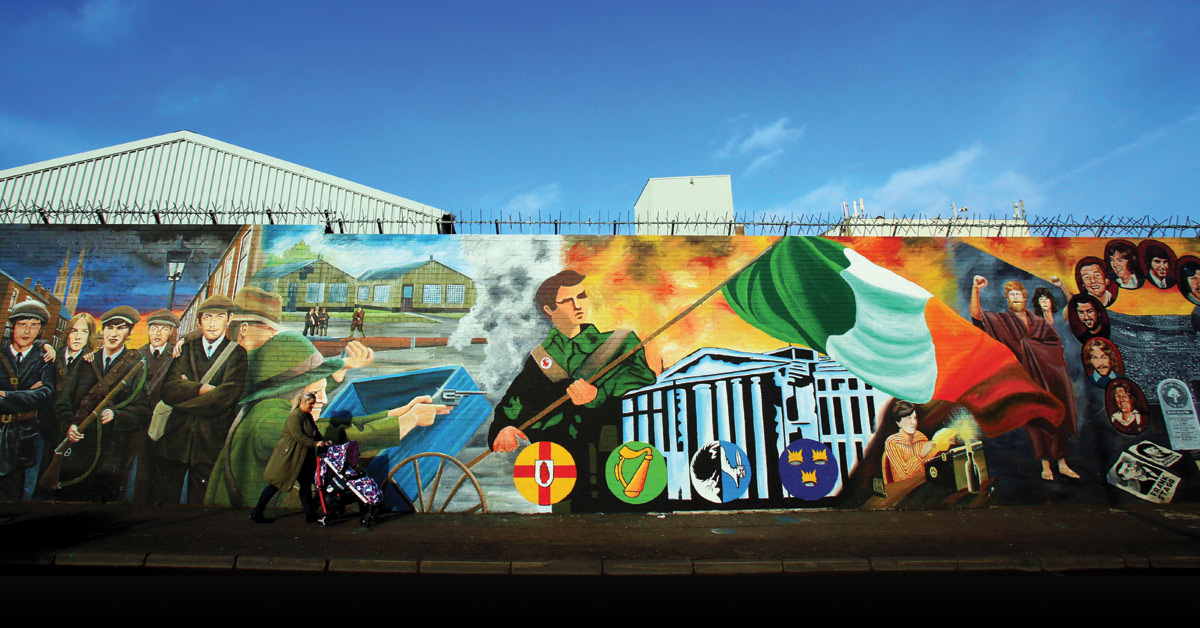

Fordham Law School’s Belfast/Dublin Summer Program,
the lessons students are learning about international law, conflict, and what it takes to make peace feel more crucial than ever. Here, a look at the milestones, and at what the future holds.
Fordham Law School’s Belfast/Dublin Summer Program,
the lessons students are learning about international law, conflict, and what it takes to make peace feel more crucial than ever. Here, a look at the milestones, and at what the future holds.

In group shot: Fordham-Ulster Conflict Resolution Program participants in 1996.
Feerick accepted the invitation, and took back an impression of common humanity. “The people there wanted what we all want—a peaceful society for their families,” he says. But Hume’s second request lingered in his mind, particularly when, the following year, he joined Bill Clinton and a group of 30 academic and business leaders on the first-ever presidential visit to Northern Ireland. Clinton, it turned out, also wanted more from Feerick. At the end of the trip, he challenged the men and women in his entourage to find ways to invest in Northern Ireland.
Feerick immediately knew that his investment would not be of the financial kind. “Instead, I got the idea to bring together the major law schools in the North and South of Ireland, for the first time in history,” says Feerick.
Fordham Law would be the bridge.
In 1996, he laid the groundwork by forming the Fordham-Ulster Conflict Resolution Program with Professor Jacqueline Nolan-Haley. Twenty-two residents of Northern Ireland from both Protestant and Catholic backgrounds were invited to Fordham Law to study conflict resolution in a neutral territory, with the goal of bringing back what they learned to their embattled communities.
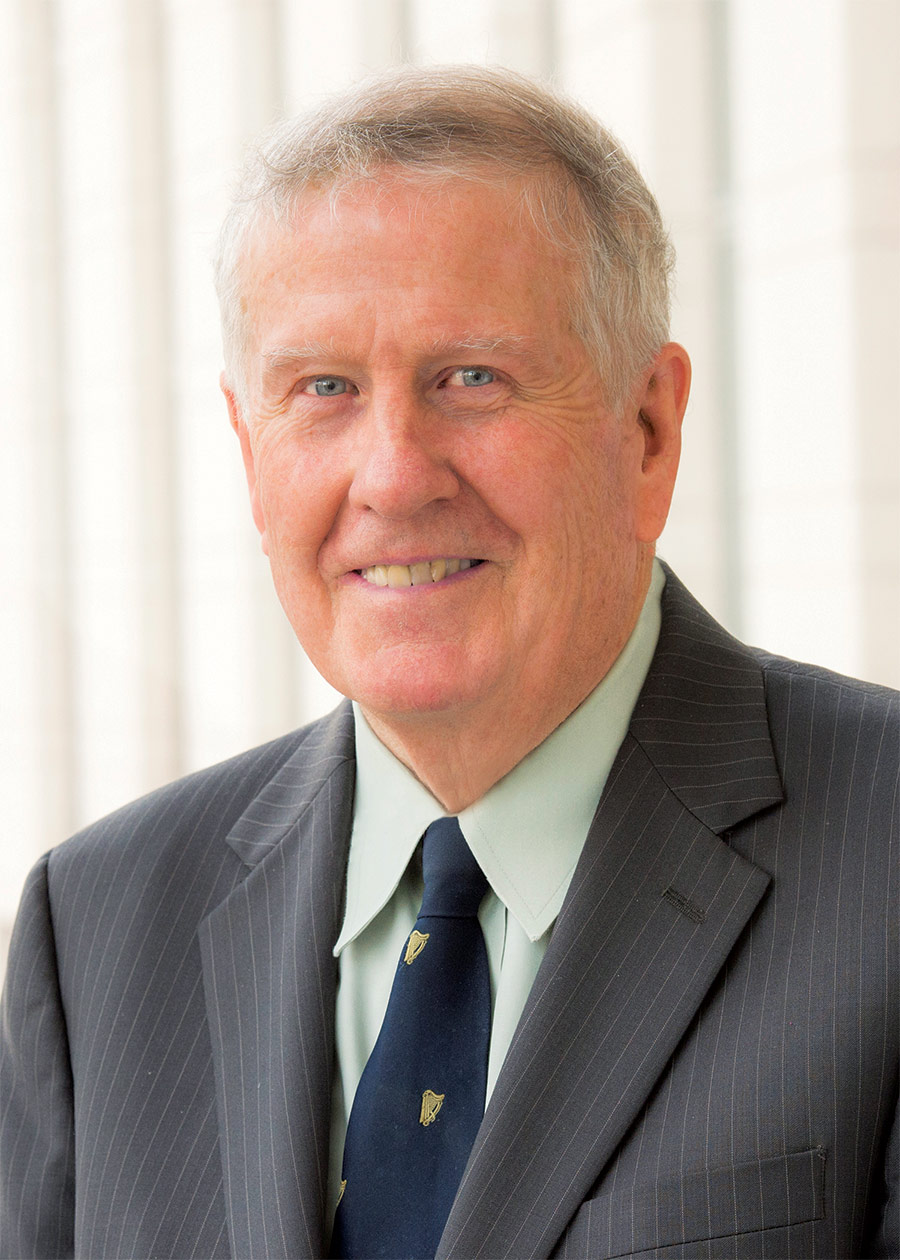
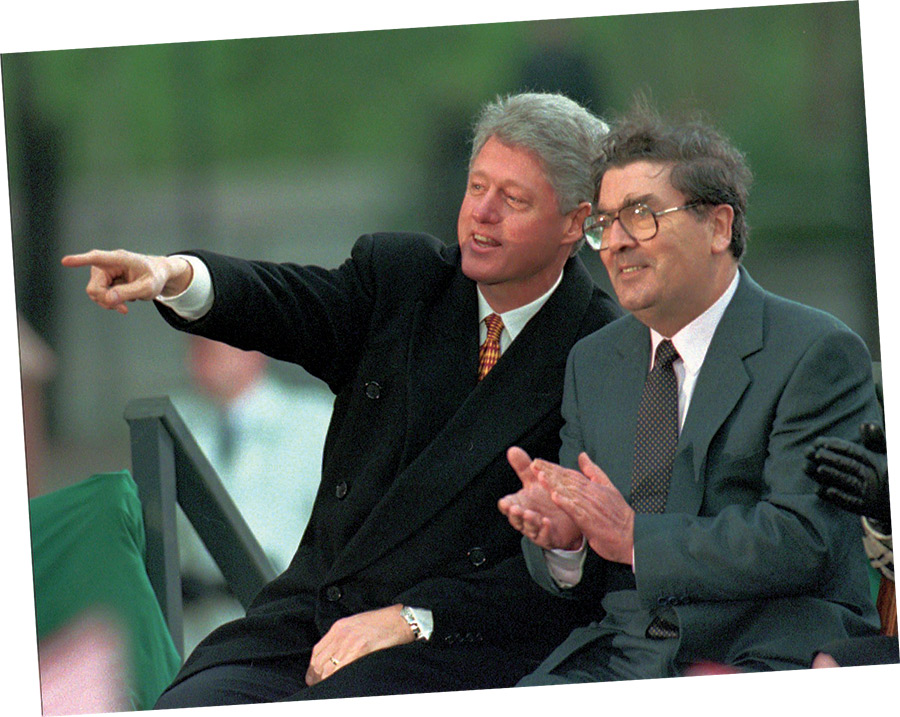
By 2001, the first wave of Fordham Law students traveled to Ireland to take part in that grand experiment: Students would spend time in Belfast then in Dublin, taking courses in conflict resolution and international law—and, perhaps more important, immersing themselves in communities few Americans had visited. “I didn’t know much about the Troubles before going there,” says James Bulger ’03, who visited Belfast during the program’s inaugural summer. “But Dean Feerick and the rest of the teachers did an amazing job showing us around and explaining the history and nuances. It never felt scary, per se, but from time to time, there was a nervous energy in the air.”
Bulger recalls one encounter in a pub where he was gathered with a group of students and professors. “A tough-looking guy heard my accent and asked if I was American,” Bulger recalls. “I picked up on some cues, figured out he was Catholic, and told him I hoped everyone could get along but that I was there with a Catholic school.” Only then did the local drop his guard. “He hugged me and told me we were welcome there.”
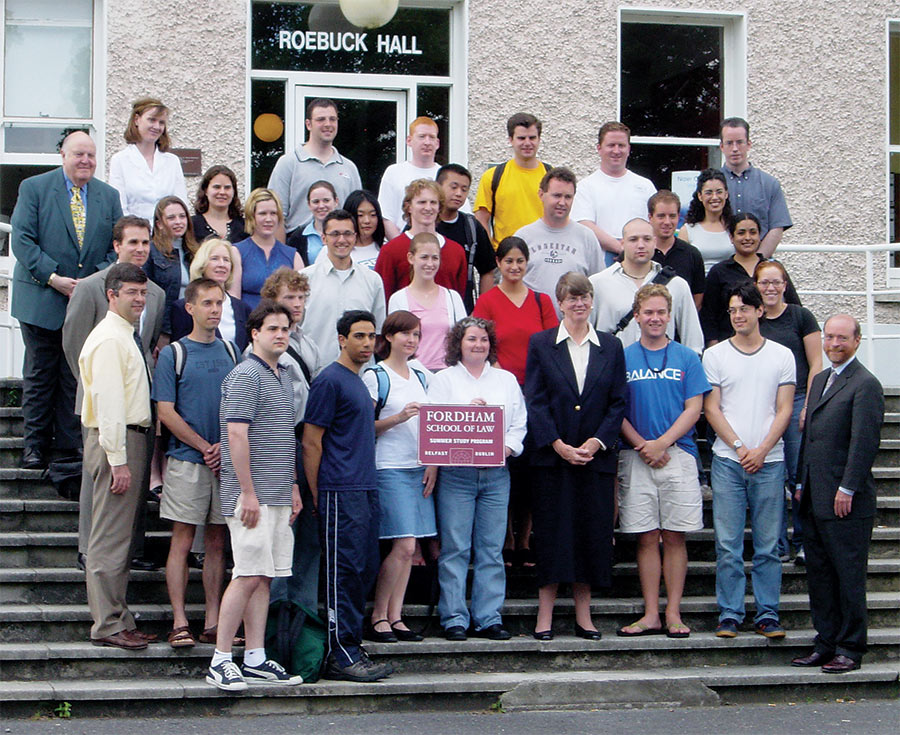
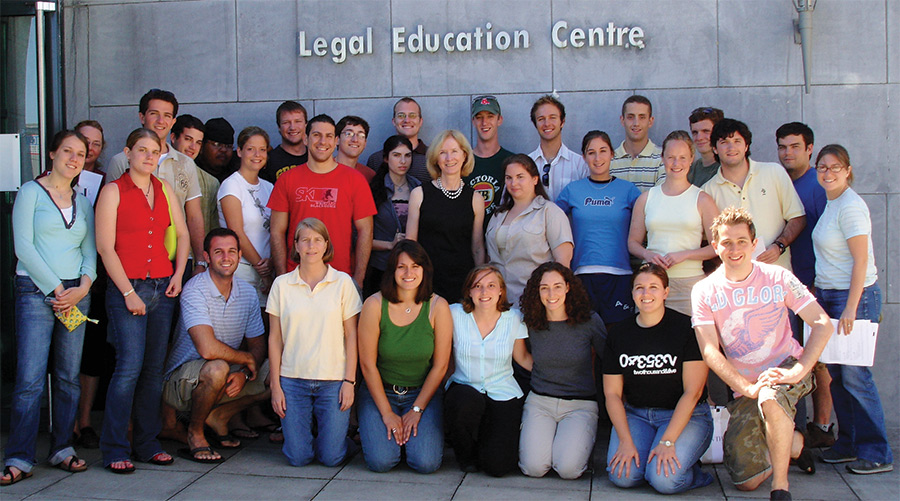
Professor Martin, who has family in Ireland, witnessed some of this tension firsthand. In 1988, he traveled to the North while working with the Institute for International Sport. “Being there then had a profound effect on me,” he recalls. “There were military personnel with machine guns on the streets. I hadn’t seen that before.”
And even fewer law students were getting the kind of full-on crash course in the region that Fordham Law’s students did—and still do. “Everyone shows up in Belfast on a Sunday and that same afternoon, we take the students around to the areas that were hardest hit by the Troubles,” says Martin. “Each and every day after that is about connecting the students, in and out of the classroom, to the issues around the Northern Ireland conflict, which continues today.” That means seeing the so-called peace walls, which are now covered with graffiti and vibrant murals that draw hordes of tourists yet continue to segregate Catholic from Protestant, republican from loyalist. “From 2001 until 2007, we’d hold panels, and it was common for parties from the North and South to refuse to speak with each other,” says Martin. “Panelists from opposing sides would tend to make a general statement at the beginning, with their backs to their opponents, before storming out. People had difficulty sitting next to folks who had supported acts of violence against them.”
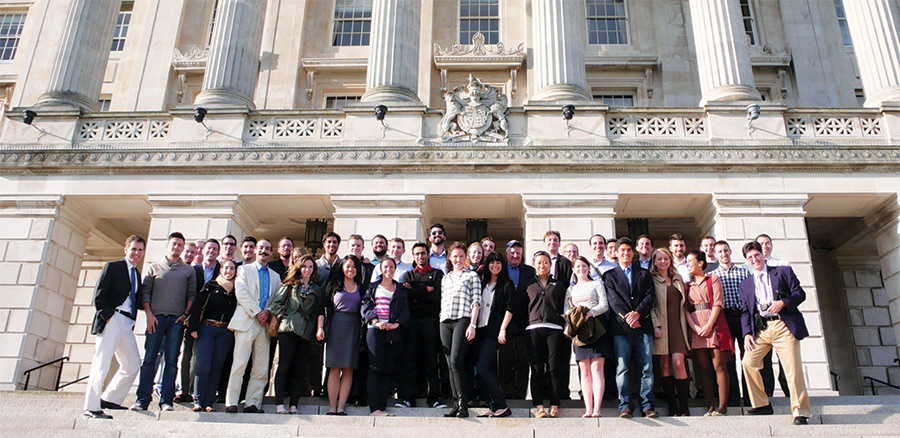
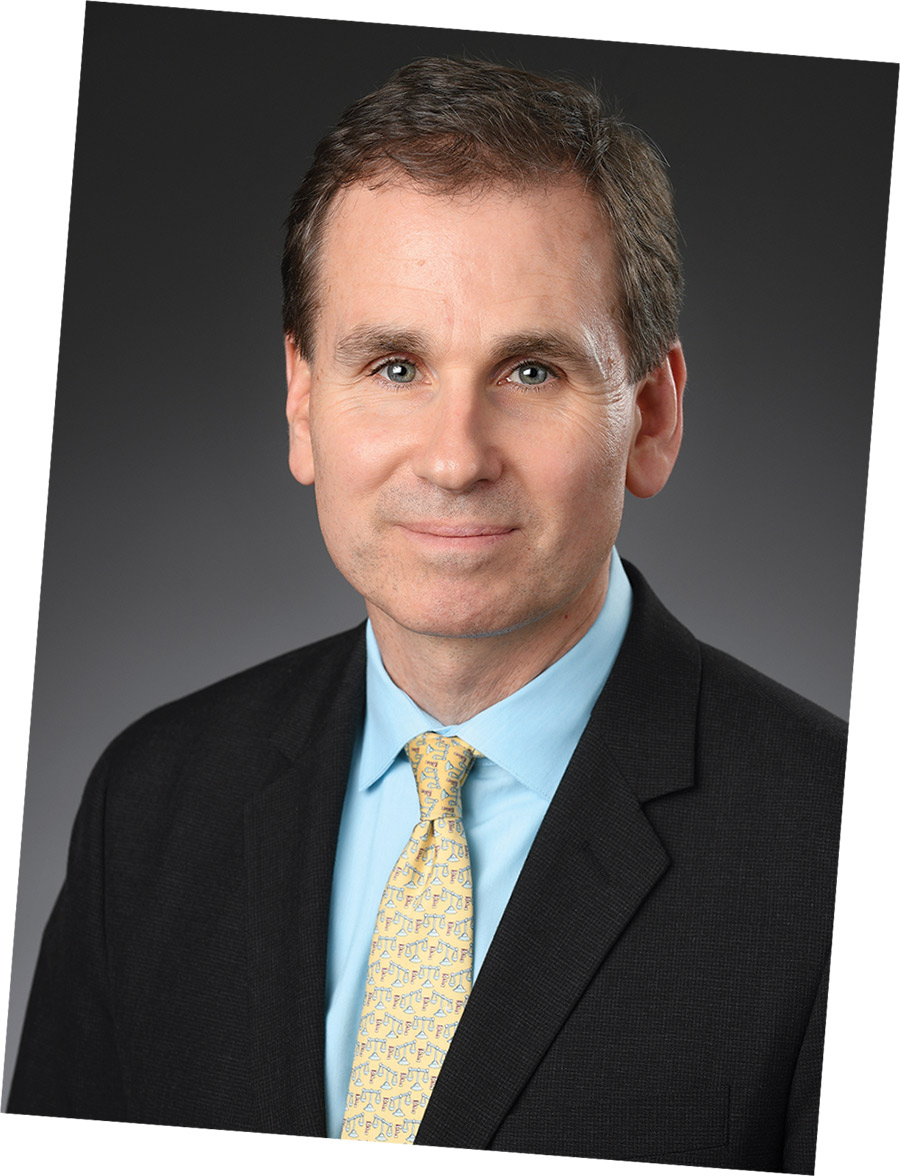
Akbar Khan ’18 completed his 2016 internship with Belfast’s Public Prosecution Service (PPS). “When I started, the Brexit vote was coming up,” he says. “My supervisor asked me to look into the implications for criminal justice in Northern Ireland if the U.K. left the EU. The vote passed during my stay, so the research I was doing suddenly became very real,” he says.
The internship portion of the program was so successful that when a new chief justice took over in Northern Ireland, he asked, “Why isn’t this opportunity open to Irish law students?” Now, thanks in large part to Fordham Law, the Supreme Court there also takes interns from Irish law schools, as well as law schools in Wales and Australia. “Helping to create internships there is one of the things I’m most proud of,” says Martin.
Today, a select number of Irish law students from Queen’s University Belfast and University College Dublin also study alongside Fordham Law students. “I think these connections allow students to experience a broader, more nuanced understanding of divisions in and between the North and the Republic,” says Khan. “We walk away with a more complicated viewpoint on the region’s geopolitical history.”
Imelda Maher, dean of the law school at University College Dublin, agrees: “Bringing together students from the three jurisdictions [Northern Ireland, Ireland, and the United States] broadens and deepens understanding. That’s particularly important at times of uncertainty, such as those we are living in now.”
Not surprisingly, the Belfast/Dublin program fosters and strengthens connections within the Fordham Law community as well. Martin estimates that the program is responsible for at least 10 marriages (he even officiated one of the weddings). “John [Feerick] and I always talk about how, when we go to reunions or graduation events, the Ireland students are always gathered together,” says Martin. “It can be easy to feel disconnected in law school, but students from our program are truly bonded.”
But there are those who are also cognizant that the links formed with Fordham Law and the United States can serve as a lifeline of sorts. In 2018, Feerick was part of a group that received the Belfast Homecoming Ambassador medal. “Our Ireland program was part of that,” he says. “I was introduced by the lord chief justice in the North, who uses our students as interns.”
Whatever happens with Brexit, Martin believes the program will continue bringing students to the North. “They are the future bar members and political leaders who will understand and appreciate the rich and, at times, troubling history of Northern Ireland,” he says.
That is not hyperbole. Conor Walsh ’15 who attended the program in 2013 is now an advisor to U.S. Rep. Tom Suozzi ’89. Congressman Suozzi submitted a resolution to the House of Representatives reaffirming American support for the Good Friday Agreement. It passed out of the House Foreign Affairs Committee unanimously in October and at press time was awaiting consideration before the full House of Representatives. “We’re optimistic that it will be considered soon and receive overwhelming support,” says Walsh.
That’s exactly the kind of effect Martin and Feerick hope for. “A graduate of the program with a deep understanding of the North used that understanding to advise a House member who is playing a visible role on that front,” says Martin. “This is truly an example of what we can do.”
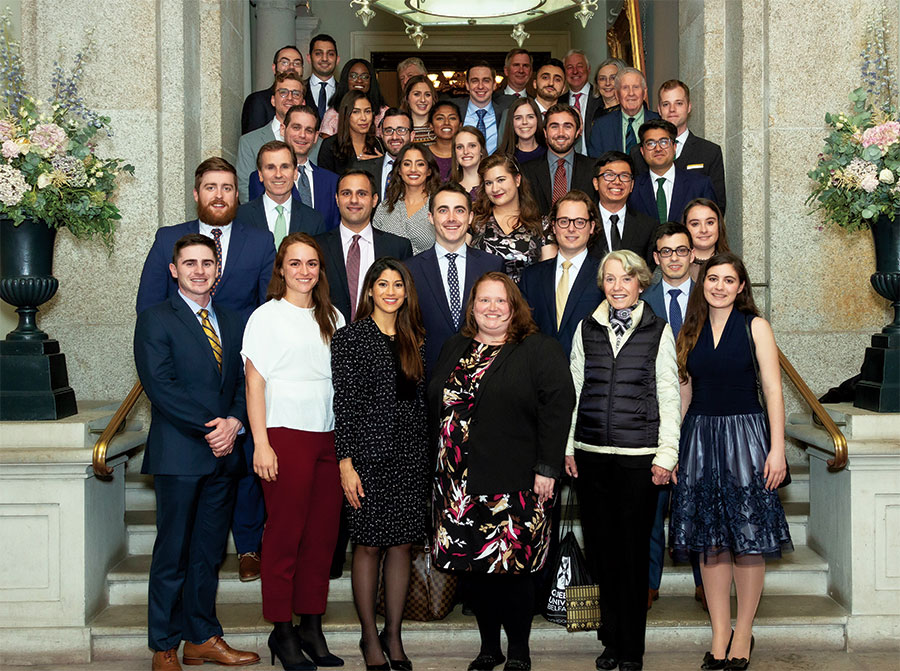
Lessons learned about friendship may be even more indelible. “One of my most memorable experiences was when a chief justice and one of our professors started singing Irish folk songs in the street outside of a pub one night,” says Bulger. “I’m Irish by blood, and even though I didn’t know the songs, I felt a kinship to them and to the country, as they sang the songs my people have been singing for hundreds of years.”
Neither Martin nor Feerick could have predicted the eventual impact and scope of the program back in the early years. “It’s fair to say that law school summer programs tend to be humble in their origins and ambitions,” says Martin. “But ours really took off, even to the extent that our friends in Ireland now invite us to join in discussions about that country’s future. That’s heady stuff.”